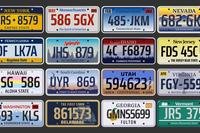You're at the car rental counter when you're asked that confounding question: "Do you want to purchase rental car insurance?"
It's not a decision to take lightly. First, the insurance isn't cheap. Full coverage could double what you're paying for the car — and that could be a big waste of money if you don't need it. For that reason, many thrifty travelers live by a rule: "Never buy rental coverage."
But making the right decision is rarely that simple. A wreck, theft or other mishap could leave you on the hook for thousands of dollars, even if you have personal auto insurance.
So before you get to the rental car counter, ask yourself the all-important question: "Am I already covered?"
Unfortunately, says Angela Preciado, director of auto product management for USAA, "there's no easy answer that applies to everyone."
Whether you're covered — and for what or how much — depends on what types of personal auto insurance you carry, what protection your credit card offers, and where you're renting the car.
"The smart thing to do is call your insurer and learn about your coverage before your trip. Don't wait until you're put on the spot," says Preciado.
Here are some general questions and answers to help you make an informed decision about your auto insurance needs when you rent a car.
What does my regular auto insurance cover?
In many cases, your regular auto insurance policy will transfer to a rental car and cover you in the same way. If you cause an accident while driving the rental, your liability insurance would pay up to your policy limits for the damages to other cars or property. Likewise, if you carry collision coverage on your regular policy, that would pay for accident-related damages to the rental car you're driving. Finally, your comprehensive coverage would take care of damages to the rental vehicle not related to a traffic accident, such as theft or vandalism.
Still, even full coverage on your regular vehicle might not protect you from every charge the rental company could impose.
What can my credit card do for me?
Many credit cards come with rental car insurance, which can supplement — or even serve in place of — your regular auto insurance policy.
For the coverage to apply, you usually have to reserve and pay for the rental car using that card. And the terms and conditions vary widely, depending on which card you have. Some cards offer primary coverage, which doesn't require you to make a claim on your regular auto policy. Other cards offer secondary coverage, in which case the coverage would only pay your deductible or other costs.
How do I know exactly what my insurance and credit card companies provide?
Before you rent a car,
- Call your personal auto insurance provider so you know what terms apply to a rental vehicle.
- Call your credit card company to find out what coverage it will provide.
When would it make sense to buy the rental company's insurance?
If you don't own a car and don't have an auto insurance policy, you should buy coverage from the rental company. But even well-insured drivers should consider extra rental coverage.
After speaking to your insurance company and checking out your credit card benefits, look at any holes in your coverage that would leave you liable. Preciado warns that little-known fees from the rental firm might not be covered.
"A rental company can hold you responsible for something called indirect damages," she explains. That includes a loss of profit to the company while the car is undergoing repairs and can't be rented out, depreciation of the vehicle and certain administrative fees. Most regular auto policies won't pay for those fees, so extra coverage from the rental company could give you peace of mind.
You should also weigh the risks of your rental car being damaged. Will you be driving long distances, or navigating through congested or unfamiliar areas? Will you have protected parking where you're staying?
Finally, coverage can get complicated if you drive your rental car across country borders or if your rental originates outside the United States.
What coverage do I have if I rent a car outside the United States?
Before you travel outside the country, be sure to check with your insurance and credit card companies. Generally, your U.S. auto insurance doesn't cover you when you rent a car overseas or in Mexico. Sometimes coverage depends on where your policy was issued and in what country the car is rented. If your regular policy doesn't cover you, buying insurance directly from the rental company might be necessary.
The Insurance Information Institute warns it is becoming more difficult to rent a car to drive into Mexico because of rising crime rates and violence. In addition, most U.S. insurance liability policies won't cover bodily injury caused in Mexico. If you are planning to drive your vehicle or a rental into Mexico, you'll need to purchase civil liability insurance, which covers you in case you cause injury or damage. You usually can buy this coverage at a storefront insurer near the border that specializes in short-term policies for Mexico.
Does it matter what type of car I rent?
A primary policy typically will cover the same circumstances for the rental car as it would for the vehicle you own.
Say you own a 2001 Honda with liability, comprehensive and collision coverage, and you get into an accident in a new luxury SUV rental. Many policies will still pay up to the actual cash value of the rental, even if it is higher than the value of the car listed on your policy, Preciado says.
What happens if the rental car is broken into and a thief takes personal items, such as a suitcase or laptop?
When traveling, it's not uncommon for expensive items, such as digital cameras, laptops, iPods and tablets, to be stolen. Items stolen from your car may be covered by your homeowners or renters insurance. Before renting a car, check with your insurance company to be sure about the dollar limits covered and your deductible. And, remember not to leave valuable items in your car.
Who do I contact if I get into an accident?
After moving to a safe location, call the police; and, if anyone is injured, 911. Then, contact your insurance company and the rental car company.









